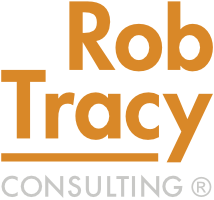Vaccinations through the decades have provided significant public health benefits and prevented widespread illness. However, in these modern times, talking about vaccinations gets a variety of reactions, strong emotions, and technical debate. Many people have some fear and skepticism about side-effects or just wonderings about what the vaccination contains and what is going into their body.
For employers, HR professionals and business owners, we now must talk about vaccinations and their importance to the businesses we run. It is possible this conversation is short and your business does not need to concern itself with whether employees get vaccinated. But if employees are routinely exposed to the public, others more vulnerable to disease, or work in close quarters in the workplace so exposure could cause business disruption, then employers need to consider vaccination conversations and have a plan with guidance for employees.
Start by asking your employees what their current views are about vaccinations. This will gather base-line information to help guide decisions and communication necessary with employees.
Determine your business case for why COVID vaccinated employees are necessary or not for your business. To require vaccination of employees, an employer must demonstrate a “direct threat” due to the risk of substantial harm to the health or safety of the employee or others. Make sure your rationale is job-related and consistent with business necessity.
Evaluate the risk of having your employees unvaccinated. Maybe they work closely with the public or vulnerable populations and this fact could weigh heavily in needing vaccinations or not being allowed to be in contact with clients. Consider if staff are routinely exposed to others not vaccinated or if exposure absences decrease the ability to continue operation.
Communicate and educate employees about the value of immunization to the business and risks if not done. Help employees understand the company’s needs through on-going and frequent communication about health, wellness, prevention, and company policy. Some employees may see others getting the vaccine with no reactions or complications and find that eases their mind and garners employee cooperation.
Exceptions for medical and religious needs must be allowed if businesses require vaccines. For anyone requesting an exception, you now must enter the “Interactive Process” to provide medical or religious accommodation. The EEOC requires this next step, and you will want to work with an attorney or qualified HR professional to ensure you have a strong and detailed vaccine policy and accommodation process. Consistency is key. For these exceptions, discuss job modifications like providing a different job that allows work from home permanently. Consider asking the employee to continue to work under existing COVID safety protocols (masks, distancing, etc.). All of this must be discussed and documented. If an exhaustive look at accommodations cannot find a way to make things work without undue hardship to the business, then the employee may not be able to continue employment. And if an employee just does not want the vaccine for secular or medical beliefs about vaccines, these reasons do not need to be accommodated.
Consider offering incentives to employees for getting the vaccine. But provide alternative incentive options for those medically/religiously not able to get the vaccine. Also, make sure your vaccination or documentation process is confidential and follows all HIPPA requirements.
Employers may want to verify if there are additional protections for employees in their state. However, in Minnesota, if an employer has a legitimate business need to require immunization, they may do so, and must work toward accommodation for the medical and religious exemptions.
Kara Sime is an experienced Human Resources Consultant and Coach providing strategic and technical guidance to leaders at all levels, making HR work for the business. She can be contacted at kara@yourhrnavigator.com, 612-968-9682, or LinkedIn.
